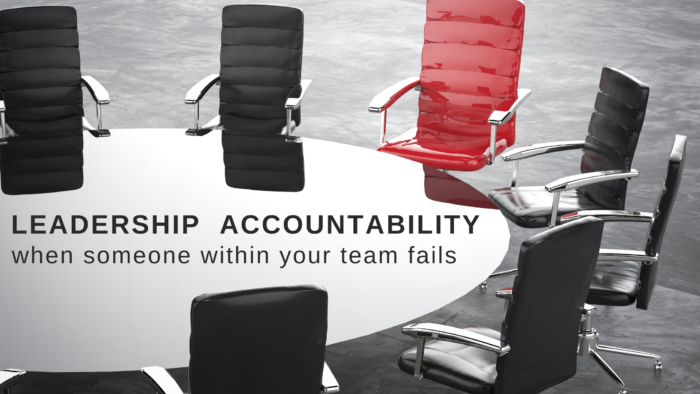By Donna Hoffmeyer
(original post on Medium, Taking Off The Armor)
A year and a half ago, a Tennessee nurse was charged with criminally negligent homicide. It was a blow to the medical community and a lot of outcry at the outcome.
I know what many non-medical people are thinking. How could it have been a shock? She killed someone!
I get it. On the surface, it seems black and white. However, when you look a little deeper there is, as with many things, more to it. One of the biggest issues was how leadership at Vanderbilt handled the situation.
According to an article in khn.org Vanderbilt did not properly disclose the error, even going so far as to report the patient died of natural causes. However, they fired the nurse and settled out of court with the family, which included a gag order to prevent the family from discussing the death.
The nurse, on the other hand, reported the error and took responsibility for her actions. The nurse faced jail time, while Vanderbilt walked away without so much as a hand slap. Fortunately, for her, she was given 3 years of supervised probation.
The whole situation started me thinking about leadership and accountability.
No one works in a bubble. It is impossible. No one walks in the door of any job, knowing exactly what needs to be done. There is education (formal or OJT), training, practicing, learning, and repetitiveness. It is a collaborative effort between leadership and the person stepping into the position. Clear, open, and effective communication exists when it is a two-way street.
When I was a brand new nurse, I made a medication error. I gave a woman, pregnant with twins, having preterm contractions, medication to stop the contractions. The only problem was I gave her three times the dose ordered. As soon as I gave it, I had a weird sinking feeling in my stomach, like something was off. When I went back to the written order, I saw my mistake. I heard the doctor say to me, Give a dose of terbutaline…and I did..or at least I thought I did.
I reported it to the charge nurse and doctor…and then went into the bathroom and cried. Once I pulled myself together, I told both of them I was going to tell the patient my mistake myself. It was one of the absolute hardest things I had done in my career.
Fortunately, the outcome was positive. Minus needing a little oxygen to offset the rapid heart rate of her and the twins, there was no damage, and she went on to deliver healthy full-term baby boys. (Yes, there were a few warped jokes about my mistake holding her off until her due date. Medical humor is pretty twisted.)
We were also in the midst of a change of nurse managers and I experienced two very different responses. The one leaving was very accusatory and made me feel worse than I already did. Fortunately, she passed “the problem” onto the new nurse manager, and her approach was amazing throughout the whole thing. When she investigated, she found there were a few things that contributed to my mistake.
- During my orientation, my preceptor showed me the area where single-dose vials of medication were kept. The medication I gave was in this section because it was technically a single-dose vial when used to manage an asthma attack. However, when used for labor and delivery, to stop pre-term contractions, it is a multi-dose vial.
- I was never given the unit medication test during orientation, along with a few other unit-specific training segments.
When I heard, Give a dose of terbutaline, and went to the single dose vial section to get the medication…well, there you go. It was completely my fault for not reading the order after he had written it. However, it was a failure of leadership in fully preparing me for my job.
The result was my return to orientation. Did it crush my ego? Hell yeah. Did I know it was the right answer? Yep…and I had the utmost respect for the nurse manager. Was I ultimately responsible…of course. However, she acknowledged there was a failure in my learning and found an appropriate solution.
As leaders, how are we approaching the failures of the people we lead? Are we holding ourselves accountable for their failures? If you answer no, then you are part of the problem.
What culture are you trying to develop? And please, let it be known that what you say means nothing compared to your actions. People can see through the bullshit. They may not be able to do anything about it directly, except give up or just leave…and that will, by far, hurt you more than anything.
So I ask again, what culture are you trying to develop? I’ll take a stab and throw out a few descriptors — collaborative, trusting, respectful, open, effective, and productive are a few words that pop into my mind.
Leaders, you cannot have this type of culture if you do not hold yourself accountable when someone in your team fails.
We know the saying, A team is only as strong as the weakest link. Not taking responsibility makes the leader the weak link.
The best thing I had a boss say to me was, “It is okay to fail; that is how we learn. There is nothing that cannot be fixed. However, if I do not know what is going on, I cannot have your back.” When I was put in leadership positions, I said the same statement to the people I worked with.
I can hear it now. Oh really…well, death cannot be fixed. Well…agreed. However, if there had been open communication and Vanderbilt leadership had these nurse’s backs, a death would have never occurred. The nurses had reported problems with the medication dispensing system and were told to override the system so often that it was standard practice to override the system.
And when a big mistake was made (let’s be real, there were most likely plenty of little mistakes), they all stepped to the side and let the nurse take the full brunt of the blame. Great leadership Vanderbilt. Everyone in that chain needs to be fired.
Do not think for a minute, the person making the mistake is not accountable. Yes, they are. There are consequences to actions. However, the accountable leader is asking themselves, why? Why did this happen? What role did they (the leader) or their leadership team play in this failure…directly or indirectly? What was the environment like? In this specific case, at a time when medical staff is beyond burned out, this question needs to be asked every single time.
Leaders, time for a self-assessment! We are in a time where boss/manager/leader misbehavior is not being tolerated. People are not dealing with toxic behavior anymore. My best friend just left her company and is now working for their competitor…along with three or four other people. She is getting paid more for better hours and a healthier work environment. If the company she left was smart, they would start asking themselves why their turnover rate was so high. Yeah, but they probably won’t.
Better yet, be bold and have your staff and peers assess you. Read those comments, take a hard look in the mirror, and reflect. Humble yourself. You are in a leadership position to serve others, not so they can serve you. (Military, are you hearing this?) When you are in service, you are there to provide wisdom, education, reflection, and growth opportunities. You are to help them up when they falter, not step on them and push them aside for fear of making you look bad.
I kind of laughed when I wrote that last paragraph. The highest percentage of personality disorders (e.g. sociopaths, narcissists) are in leadership positions. How fucking ironic is that? The people most apt to cause issues are put in leadership positions. If you can remotely acknowledge this could be you…go get help…everyone in your personal and professional life will thank you.
Okay, I digressed. Folks, we are in an enormous period of change on so many levels right now. We can either try to fight it (good luck) or embrace it.
Leaders, embrace it! Take this time to find areas to grow and become the best damn accountable leader around. Will it be hard? You bet your bottom side it will be. Taking ownership, as the leader, of someone else’s mistake is not easy. It doesn’t feel good at all. However, when you can dissect it, determine the contributing factors, and figure out the next constructive steps, amazing things happen…processes improve, people learn and understand, and growth happens…for them, for you, and for those watching the situation unfold.
The medical community is going to suffer another massive blow, and unaccountable leadership plays a significant part in this. I suspect there will be nurses leaving hospitals due to not feeling they can come forward when they make a mistake. Maybe those in nursing school decide they do not want that level of stress. Maybe high schoolers, once interested in medicine, will look for another career. I’m not being dramatic. This is already happening in the teaching career field folks.
I hope and pray leaders from all career fields are paying close attention to this situation, and taking notes as this unfolds. I hope it is a wake-up call to leadership at all levels, about the importance of accountability in the face of failure.
No matter how hard we try, we have to accept we are humans and we are fallible. We are going to make mistakes. Some minor, and some nearly incomprehensible. As leaders, we have to not only be highly aware of this, but also be ready to hold ourselves accountable, either directly or indirectly.
It is when we can do this, we will become the leader that truly makes a difference.


